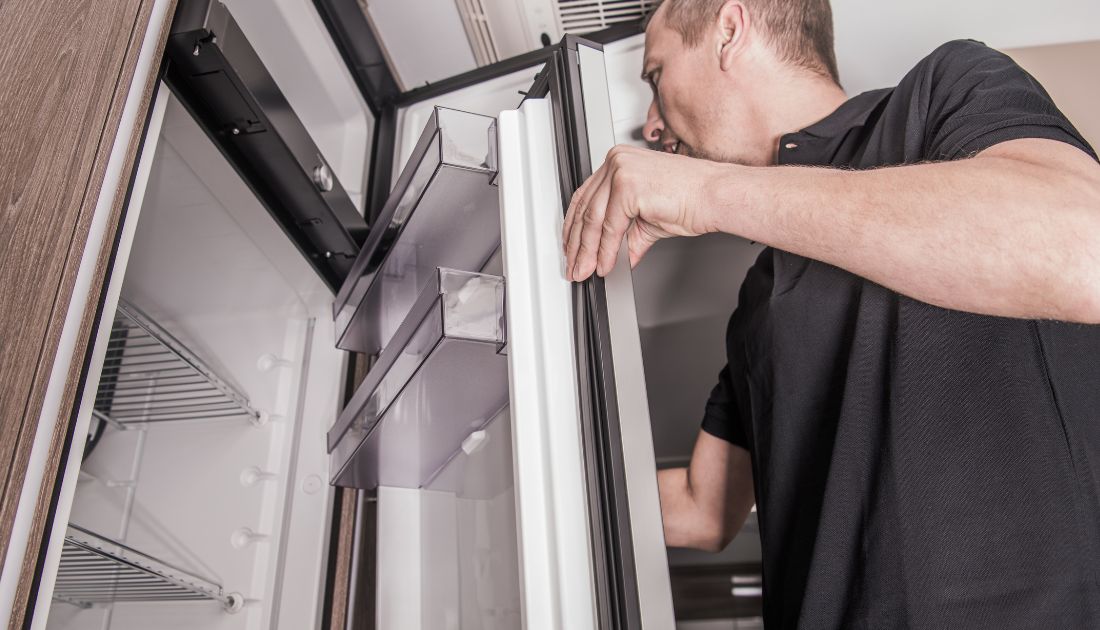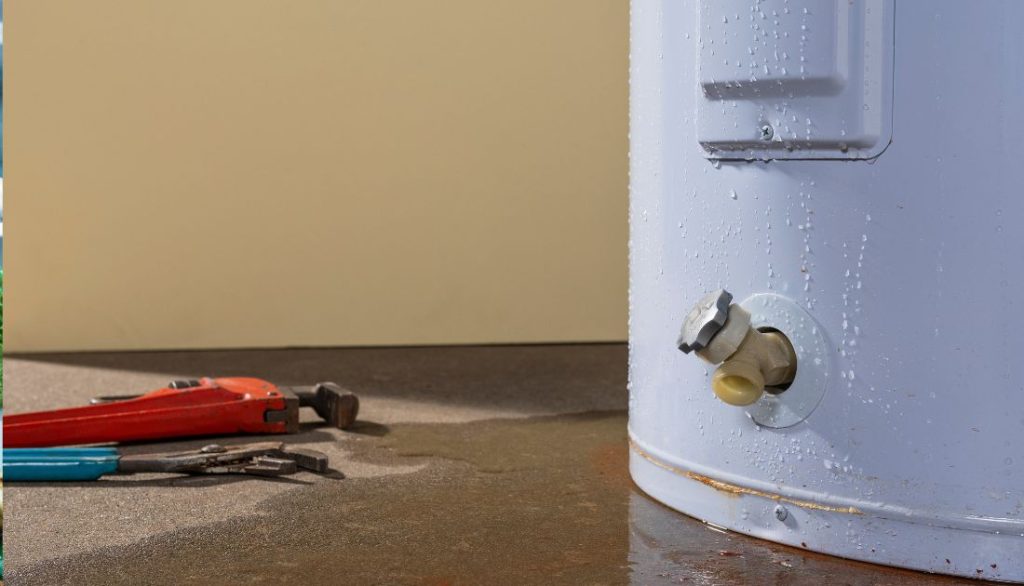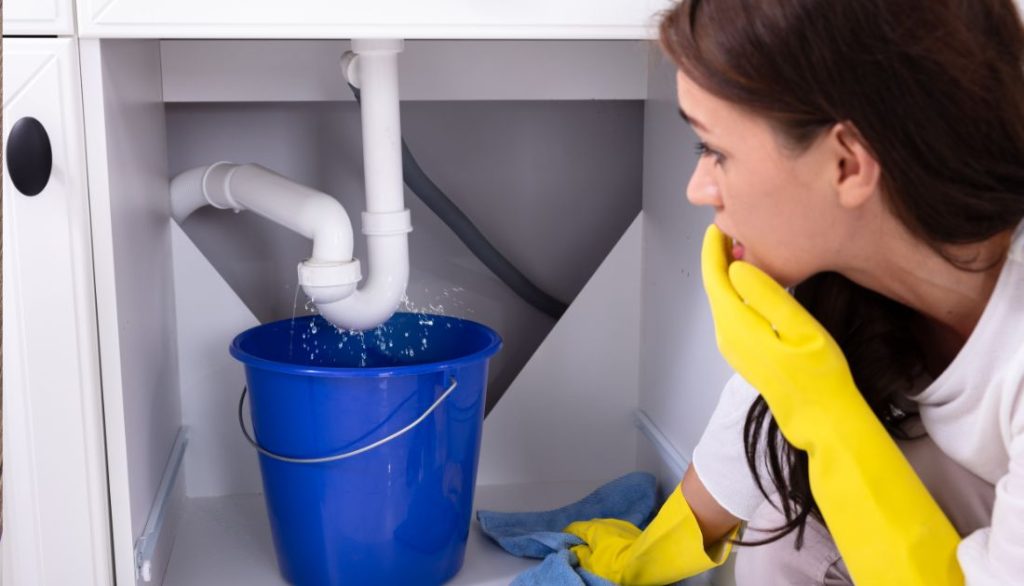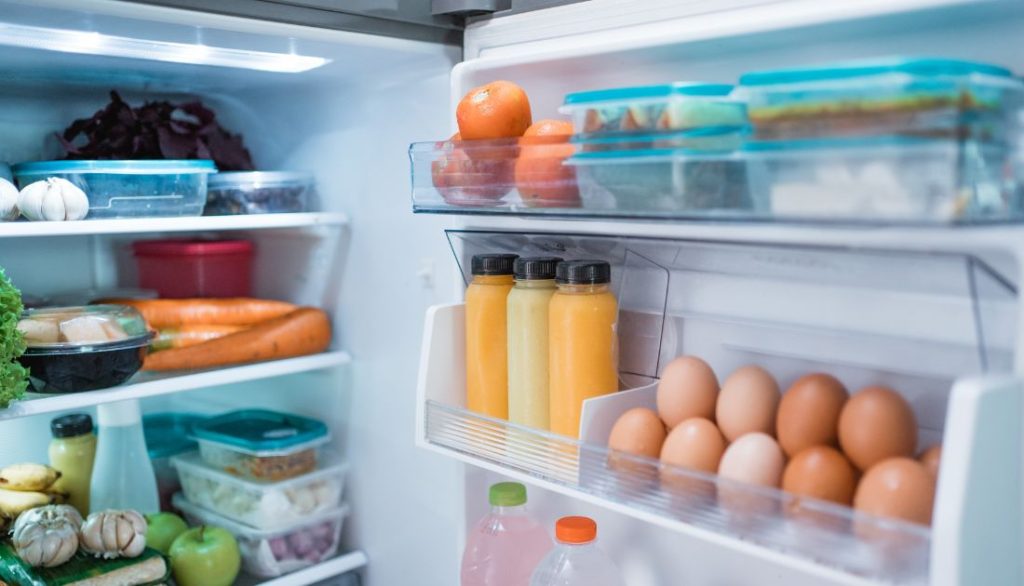Table of Contents
Refrigerators are essential appliances in any modern kitchen that keep our food fresh and safe. However, a common issue that many homeowners face is when their refrigerator starts leaking water. This can be not only inconvenient but also damaging to your home.
If you find your refrigerator leaking water, one possible culprit could be a blocked defrost drain. Over time, this drain can become clogged with debris or ice buildup, causing water to overflow and leak out of the fridge.
Another common reason for leaks is a faulty water inlet valve that regulates the water supply to the icemaker and dispenser. If this valve malfunctions or gets stuck open, it can lead to excess water seeping out onto the floor.
Clogged or Frozen Defrost Drain
- A common reason for refrigerator water leaks is a clogged or frozen defrost drain.
- The defrost drain carries melted ice and frost from the freezer to the evaporator pan at the bottom of the unit.
- If this drain becomes blocked by debris or ice, water can back up and leak onto your kitchen floor.
To fix this issue:
- Locate the defrost drain in your refrigerator.
- Use a mixture of hot water and vinegar to clear any clogs.
- For a frozen drain, carefully thaw it using a hairdryer on a low setting.
- Remove any visible blockages with a pipe cleaner or small brush.
By addressing this common problem, you can prevent further leaks and keep your refrigerator functioning properly.
Faulty Water Inlet Valve
- Check the water inlet valve if your refrigerator is leaking water.
- The water inlet valve controls the flow of water into the fridge.
- If it malfunctions, excess water can leak onto your floor.
Signs of a Faulty Water Inlet Valve:
- No ice or water dispensing from the refrigerator.
- Fluctuating temperature inside the fridge.
- A constant dripping sound coming from behind the appliance.
Remember to unplug your refrigerator before attempting any repairs on the unit to avoid accidents and ensure safety at all times. For complex issues involving internal components like the water inlet valve, it is recommended that you consult a professional technician.
Cracked or Damaged Water Supply Line
- A common culprit for refrigerator water leaks is a cracked or damaged water supply line.
- Inspect the water supply line for any visible cracks, tears, or kinks that may be causing the leak.
- If you notice any damage, replace the water supply line with a new one promptly to fix the issue.
How to Fix:
- Turn off the water supply to your refrigerator before beginning any repairs.
- Disconnect the old water supply line and carefully remove it from its connection points.
- Install the new water supply line by connecting it securely to both the fridge and the main water source.
- Turn on the water supply and check for any leaks; if everything looks good, you have successfully fixed your cracked or damaged water supply line issue.
Improperly Levelled Refrigerator
Check the level of your refrigerator to ensure it is properly balanced. An improperly leveled refrigerator can cause water leaks as the appliance struggles to regulate its internal systems. Use a leveling tool to adjust the legs of the refrigerator until it is sitting evenly on all four corners.
By addressing this issue, you can prevent further water leakage and maintain the efficiency of your refrigerator. Remember that keeping your appliance well-balanced not only prevents leaks but also helps it run smoothly for longer.
Blocked or Overflowing Drain Pan
Check the drain pan located underneath your refrigerator, as it may be blocked with dirt, debris, or even ice. Clear any obstructions from the drain pan to allow water to properly flow out. If the drain pan is overflowing, it could indicate a larger issue with your refrigerator’s drainage system.
Ensure that the drain hose is securely connected and not clogged. If you are unsure how to address this problem yourself, it may be best to contact a professional for assistance in clearing out the blockage and preventing future leaks.
Leaking Ice Maker
If your refrigerator is leaking water, it may be due to a malfunctioning ice maker. Here are some common reasons why this could be happening:
- Clogged Water Inlet Valve: A clog in the water inlet valve can prevent proper flow and cause leaks.
- Faulty Defrost System: If the defrost system is not working correctly, excess ice buildup can lead to water leakage.
To troubleshoot a leaking ice maker:
- Check for any visible obstructions in the water inlet valve.
- Ensure that the defrost system is running smoothly by testing its components.
- If issues persist, consider contacting a professional appliance repair service for further assistance.
Condensation Buildup
- Causes:
- Condensation buildup occurs when warm air enters the refrigerator and comes into contact with cooler surfaces, forming water droplets.
- Solution:
- Check that the door seal is intact and allow a tight closure to prevent warm air from entering.
- Avoid opening the refrigerator door frequently, as this can introduce more warm air into the appliance.
- Consider placing a dehumidifier near the refrigerator if condensation continues to be an issue.
- Prevention Tips:
- Keep your fridge in a cool, well-ventilated area away from heat sources like ovens or direct sunlight.
- Ensure proper airflow around the refrigerator by leaving space between it and surrounding walls or furniture.
Door Gasket Seal Issue
- Damaged or worn door gaskets can lead to water leaks.
- Check the door gaskets for any signs of wear, tears, or cracks.
- Replace any damaged gaskets to create a proper seal and prevent leakage.
Make sure the door is closing properly:
- Check for any obstructions that may be preventing the door from closing fully.
- Adjust the leveling feet if necessary to ensure the refrigerator is properly aligned.
- Clean debris and food spills around the door area to help with proper sealing.
Regular maintenance and inspection of door gaskets can prevent water leaks and keep your refrigerator running efficiently.



